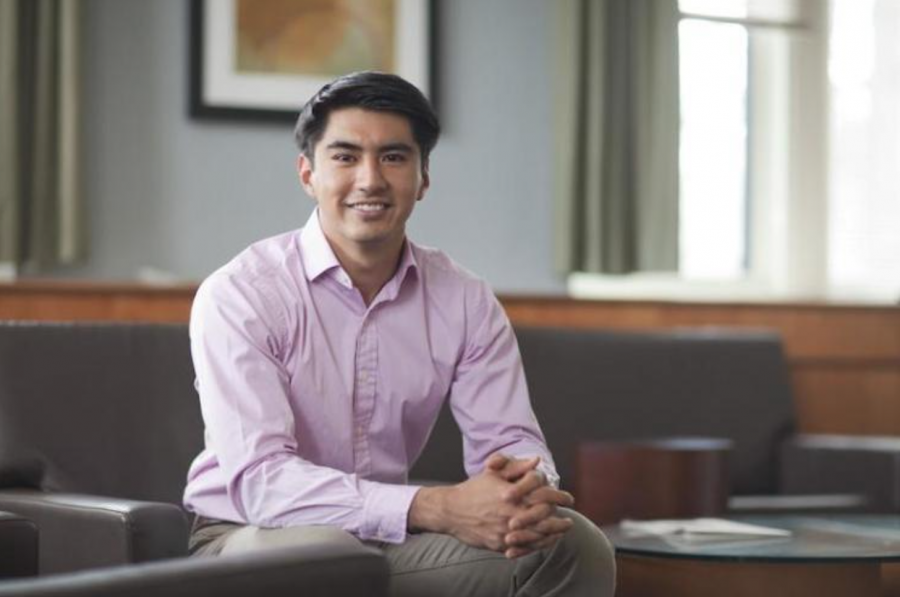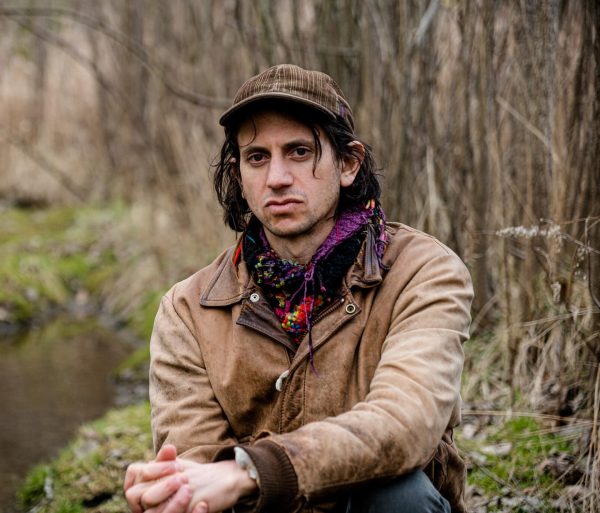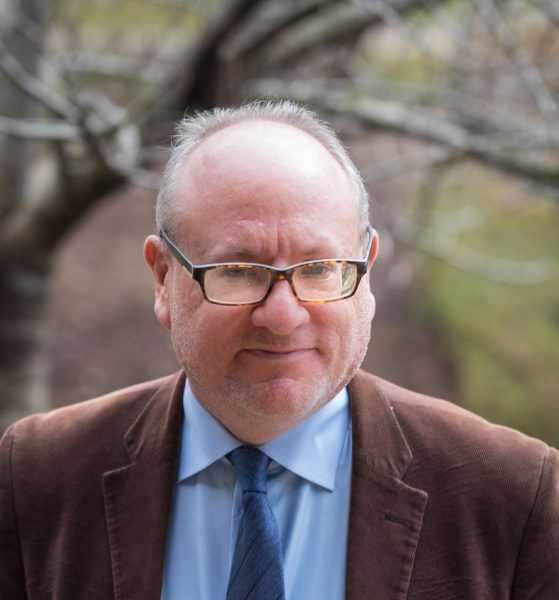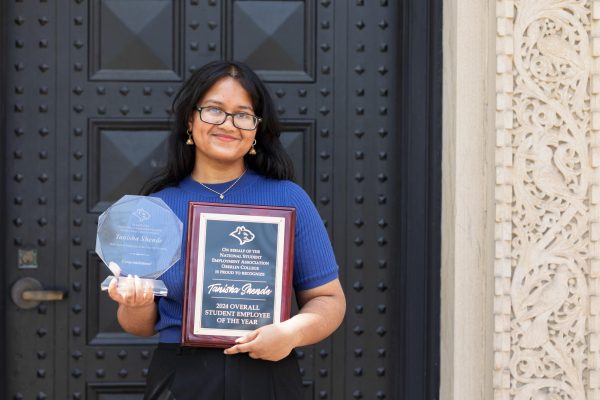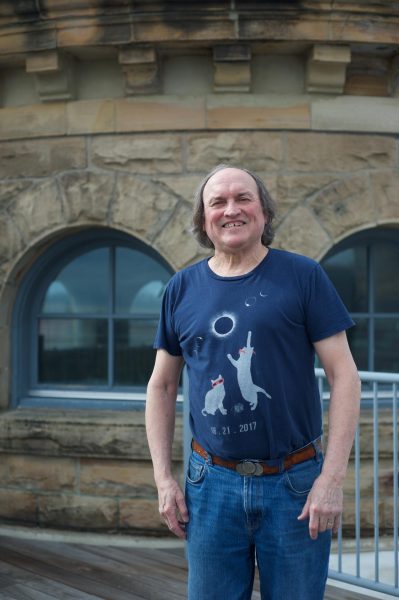Off the Cuff with Machmud Makhmudov: Biden’s Policy Analyst
Machmud Makhmudov
Alum and previous Student Vice President Machmud Makhmudov, OC ’16, delivered a talk this Friday titled “Policy in Presidential Races,” where he shared lessons from his experience as a policy analyst for the Biden campaign. After graduating from Oberlin in 2015 with a Truman and Rhodes scholarship, Makhmudov interned with the White House Domestic Policy Council, Atlanta’s Office of Sustainability, the Environmental Defense Fund, and Rep. John Lewis. He joined the Biden campaign in August 2019 as a member of the domestic policy team, leading the local outreach division. He spoke with the Review about this experience and healing after a contentious campaign season.
This interview has been edited for length and clarity.
What sorts of policy were you looking into on the Biden campaign, and what did your work look like?
My team was purely domestic policy. I led our local outreach, so whenever the president-elect would travel, he would go to a number of small towns in the course of the day. My job was to call the people there — either local elected officials or activists, community leaders, just people that can speak to the issues that are important there — get that research, and then marry that to what our proposals were. So that was a lot of fun for me, because I got to learn about every small town in Iowa and New Hampshire, and then towards the end in Michigan and Wisconsin, and all these places. And so I really appreciated being able to hear what people are going through, because oftentimes it’s very different from what you see in the news.
Then once the pandemic hit, I worked very closely with our public health advisory group. I helped them write two memos updating the president-elect every day. They briefed him maybe once a week, so I also spent some time working on that. And then, generally, because we’re so small, we helped support the overall policy development process. Most of that was done prior to the primary. But then, in the pandemic, you have to come up with a slew of different things to talk about how we would take on the virus, and that involves working with communications teams, helping them think through how to prepare him for media interviews and package everything we’re talking about, and get in that local context — and, depending on who he’s talking to, helping with speeches.
Michigan turned out to be such a linchpin of this election — I was wondering whether, with your background, you could tell me how Biden found a unique edge in those small, local towns?
Yeah — Michigan’s actually a great example because it’s this place where the president-elect had a lot of personal background. He led the recovery in 2009 under President Obama, and a big part of that was the auto [industry] bailout. Particularly for a place like Michigan, it’s really marrying a message of bringing manufacturing jobs back — leaning on the record of what they had done in 2009 — and positioning Michigan in particular to be a leader in manufacturing net-zero emission electric cars. It helps if you’re someone like Joe Biden, you have a track record of success there, and you can frame what you’re talking about doing with what you’ve done already. It’s a little more believable.
And then I can’t go without speaking to how we invested deeply in organizing the African American community in Michigan, particularly in Detroit. African American voters supported us very strongly in the primary — they obviously did so in the general election as well — so that was a very big focus for our campaign. And secondly, a lot of people don’t talk about this, but there’s also a significant Muslim American community in Michigan. If I recall correctly, it has one of the largest Muslim populations of any state, like in Dearborn, it’s kind of a suburb of Detroit. Michigan is a place we went to a lot. They just barely carried it over, but luckily it ended up in our column in the end.
Let’s talk a little bit about national reconciliation. I’ve been hearing a lot through podcasts and other reporting about how Democrats plan to reconcile with Republicans — to rebuild a form of unity. I was wondering what that reconciliation is going to look like from your end.
That’s a very big topic. I don’t want to pretend to speak for the campaign on this one, but just my personal perspective. Number one, we ran on healing this whole issue — the extent to which that can actually happen is up for debate. My sense is that the issues that we are going to focus on in the beginning are very much non-partisan things. By demonstrating classic Joe Biden empathy, you can actually garner a lot of trust. If we can move quickly on putting money in people’s pockets, ending this virus, creating a lot of jobs that lead us to a clean energy future — real stuff that you can see and feel — and do it in a way that addresses past racial injustices, I really hope and I anticipate that there will be real improvements in people’s lives.
We saw that at the end of two similar eras. The 1890’s Gilded Era: a lot of inequality, a lot of racial unrest, a lot of immigration. You had an era of strong progressive reform after that, and people appreciated it and began to see the role of the government in a different way. And during World War II, Franklin Roosevelt went out there and he did big things that people saw, the f**king buildings being built and everything, and they appreciated that, and it engendered goodwill. So, I think Joe Biden very much sees this moment as the crisis that it is, whether it’s on the pandemic, climate change, or racial equity. He’s gonna move quickly, and I’m hoping that people feel it and it really does make a difference.
Of course, politics always feel different on the Oberlin campus than in other places. Did your time at Oberlin have an effect on your perspective on domestic policy?
I grew up in a very middle class, very suburban place. I didn’t know anyone from New York, San Francisco, or any place like that. And for me, it was really just a four-year process of learning how to understand other people that are significantly different from you. Number one, I just think that it’s good for your life, to be a more informed and introspective and sensitive and empathetic person. But I think as it pertains to politics, you take it to the next step and it’s not just about how you understand people, but how you convince them of things, how you lead toward some kind of project.
The biggest things I learned at Oberlin were through the Student Senate. I spent three years on Senate with probably the most different people from me I’ve ever interacted with in my life. I definitely had a lot of difficult moments, but I really came in with the mindset of: ‘This is a gift and an opportunity to be here.’ But we had a very difficult four-year stretch here with racial issues. There were just a number of moments where you’d sit there and yell at each other and then cry, and then talk to each other, and you’d listen, and you’d figure out how to agree on stuff.
Based on your interior knowledge on the sorts of things that Obies focus on, what are some of the things we should be paying attention to in this next administration?
I think the main thing that I want to impart is that it’s not enough to just [increase youth voter turnout] one time because we had this fascist guy in office and we had to get him out. There are very few things that we ask of you for the privilege of living in this country — do your jury duty, pay your taxes, and then show up and vote. I mean, particularly for Oberlin, I feel like I don’t really need to tell anyone this.
I think another big thing that I learned, just in general, is that nothing, as it exists, has to remain that way, and I think Oberlin does a really good job of affirming that in its culture and in how students engage in activism. And so, if you see us doing things that you think are insufficient — first give us a day, I promise we’ll take a look — but you should get out there and push the government. It’s your government. Just because it’s just us in office and not Trump doesn’t mean that activism should stop. No matter where people end up, whether it’s in politics formally or not, stay engaged and pull that lever every year.


